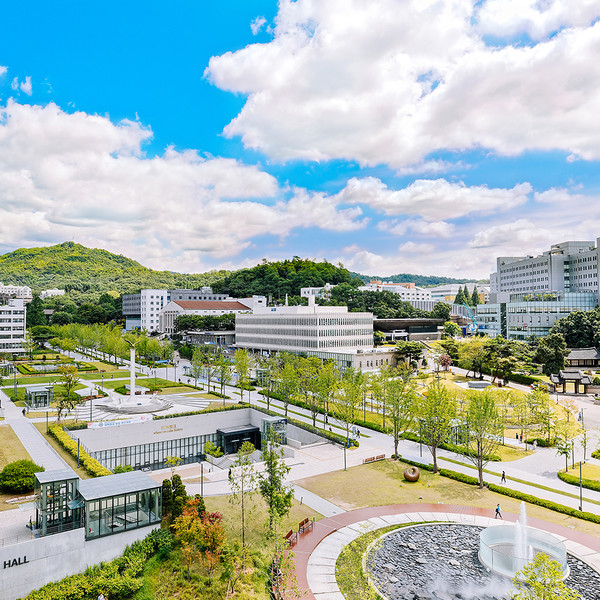A look into the recent College of Music students’ struggles

AFTER FOUR months of persistent emails and calls, the College of Music students were finally able to get confirmation from the College of Music Emergency Exigency Committee that practice rooms will once again be opened. Many students considered the administrations’ decision last November to close all practice rooms as highly inconsiderate and were blindsided by the lack of accommodation from the school to cope with this abrupt change. This shared discontent fueled rapid student consolidation and consequent collective efforts to improve communication with the school. As these efforts proved to be so successful, this event became an opportunity for students to realize the stakes they have in campus administration.
How it all began
On July 6th, as domestic COVID-19 cases began to subside, Yonsei University decided to introduce the blended learning system for 2020-2. College of Music students had to return to campus to take personal lessons, and the campus practice rooms also reopened, operating under shortened operating hours from 9:00-17:50. Things took an unexpected tum on November 13th, the day a COVID-19 case occurred at the Music Center of Sinchon Campus. The Music Centers and practice rooms were temporarily closed. Four days after the school traced back the confirmed cases to College of Music, the administration announced that classes would be conducted online, and practice rooms closed indefinitely. The sudden unavailability was highly inconvenient to the students. The Yonsei Annals conducted a survey with 52 students from the College of Music to further learn about the difficulties without a practice room on campus. Students replied that they suffered from both academic and financial repercussions as some who cannot afford a personal space were unable to practice their instrument, and even those who could afford it had to pay more than a Wl million during the semester. Although students expressed these complaints through continuous emails and phone calls to the school administration, the only response they got was that the decision was strictly following government COVID-19 protocols.
While these events were unfolding in the College of Music, the entire student community was also having ongoing conversations with the administration regarding a scholarship that would compensate for the unused campus facilities during the last previous semesters. As a result of these conversations, on December 14th, the school decided to provide all Yonsei students an additional W40,000 COVID-19 scholarship under the name of “Refund of laboratory, practice, or studio fee.” College of Music students were recipients of this fund, but they found it disproportionate to their increased expenditure. Students had already repeatedly been told that there was nothing the school could do for them and they felt helpless, having to reach out to the school again about their dissatisfaction.
2021-1 and the College of Music
Just a week before the Spring Semester of 2021 began, the College of Music announced a modification to the rules of practice room usage during the pandemic — students were only allowed to use practice rooms three hours prior to their private lessons every week. Students found two problems with this decision. One, three hours of practice time was the bare minimum for a student majoring in music, and two, students who had private lessons during first period could not use practice rooms at all because of school operating hours. Even beyond these issues, students could not understand why these restrictions were necessary in the first place. An anonymous student wrote on Everytime[1] that the school's revised measure did not logically make sense and that “just closing the practice rooms would not be effective in preventing COVID-19.” The Central Library, which is generally the most populated facility within the Sinchon Campus, was operating almost full-time. Frustrated by the school's inconsistent quarantine policies, students called the Korea Disease Control and Prevention Agency and the Seodaemun-gu Public Health Center. To their surprise, they learned that both institutions never even advised the school to close its practice rooms.
Although an Emergency Exigency Committee was formed at this time, it did not have much of a significant presence. The lack of contribution from the Committee did not go unnoticed. More than half of the survey respondents expressed dissatisfaction with the Committee's role throughout this process. Instead, students banded together; they shared contact information of the College of Music office on Everytime and edited each other's emails before sending them to the dean. By amplifying their voices as a collective, students began to receive responses from the school. One student even told the Annals that the school only began responding after the floods of emails and calls. Ultimately, on February 24, the school finally promised students that it would allow the use of practice rooms from 9:00-17:50 starting from the beginning of the spring semester.
Future of College of Music and its students
According to the Annals survey, only a small portion of students expressed satisfaction with the present outcome, and 37 students believed that there is still room for improvement. Some of the residual problems mentioned by the respondents were the unreasonably early practice rooms closing hours, prohibited use of the rooms during weekends, and the lack of communication. To ensure that these matters are addressed by the administration as well, this incident regarding practice room closures should not be seen as an isolated event but as a single part of a bigger picture that the school should draw with the College of Music students to navigate their studies through these unprecedented times. Students have clearly defined what the mishaps had been; now it is the role of the respective parties to reflect and learn.
[1] Community application for university students where they can write anonymously

